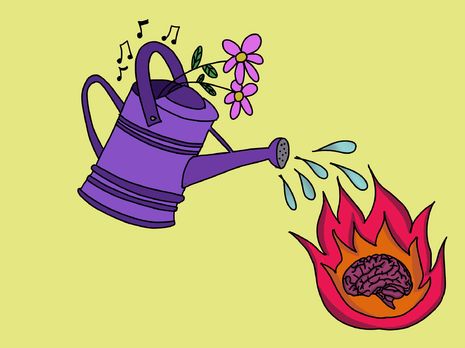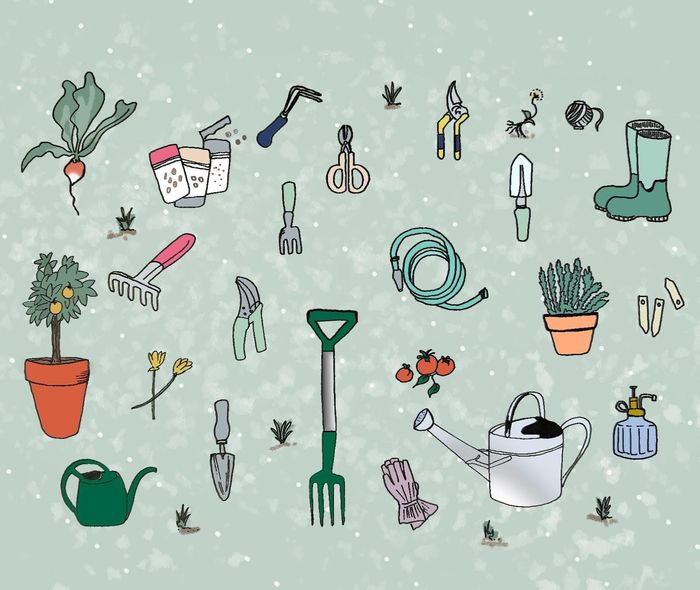Learning to live in relative disorder
Following her own journey of recovering health, Heather Cameron unpicks the unrealistic expectations commanded by popular wellbeing yoga mantras

Content note: this article contains descriptions of anxiety, depression, panic attacks
A yoga teacher’s wisdoms seem all the more valuable when spoken over you in exposed and open postures. Hearing ’you matter’ over tea and crumpets is different to hearing it while in down-dog, your shoulders on fire. However, I always sieve yogic advice carefully. One mantra which has consistently reared its head through the seven or so Youtube channels I have used, is to ‘let go of all that no longer serves you’.
At first, this sounds like an empowering visualisation. As you breathe out, you expel all the anxieties which you had brought onto the mat. You leave ready to face whatever comes your way, because you’ll only face what will benefit you. The mantra could be a form of recovery. But taking it too seriously risks a complete oversight of two significant parts of holistic health recovery. Firstly, recovering health can be hard work. Secondly, recovering health can be a disruption of a you-centered universe.
Someone I know fairly well has struggled with anxiety and depression for several years, as well as long covid for a year and a half. During a year off university and a year studying at home, they worked hard at CBT (Cognitive Behavioral Therapy) in and out of the Zoom therapy room. (Spoiler — it’s me). If I had followed this mantra, I don’t think I would have realised that the steps I was taking supposedly to serve myself, were actually not serving myself.
“Recovering health, then, can be hard work — for you, and for others”
I developed daily routines and thought structures I associated with soothing my anxiety, but they only ended up fuelling it if I deviated from them. To move forward in the healing process, I had to break this, slowly learning to live in relative disorder. When I did A instead of B, my internal firefighters would sound the alarm. Danger! Pain! Everything’s gone wrong! I had to resist their calls to douse it all in water to extinguish the flames. Instead, I had to sit back and observe the fire, tell myself it is in a safe, contained space. The next time I did A instead of B, that fire would be a tiny bit smaller, the firefighters a tiny bit less catastrophic. And again, and again.
As I contended with my internal fire squad, those close to me — largely, my parents, but also sisters, Granny, and a couple of close friends — were involved in firefighting too. The difference was, their fires were not inside them: my behaviour was their fire. Crying, shouting, panic attacks, and all the other physiological experiences of severe emotional distress. My parents were a rock. Their love was firm, and they guided and supported me to do the uncomfortable. It meant answering my questions over and over — ’you will come through this. You will be okay.’ It meant facing intergenerational tensions of how to respond to a panic attack. It meant a gritty and pragmatic attitude to face daily challenges.
Recovering health, then, can be hard work — for you, and for others.
Recovering health can also involve a disruption of a you-centred universe. I am not suggesting that experiencing mental health illness or difficulties means you are a selfish person. I have no time for that fiction. Instead, I mean that parts of recovery can involve appreciation of things outside of your immediate self.
“I know I can at least find comfort and inspiration in having learnt how to pragmatically take care of myself”
To make this a bit less meta, I will give three examples of things which have helped me and why I think they have.
Senses! My mum often told me to look and listen — crawling out of a panic attack, maybe it would be the running tap or maybe the sound of the wind or maybe the whirrs and creaks of a sleeping house. Trying to wade through distress and depression, maybe it would be the smell of Mum cooking sausages, or the sight of cobwebs on the garden bushes, or the feeling of the cat purring like a steam engine. Experiencing the senses of being alive is not immediately going to cure mental illness, but it brings momentary stillness, or fleeting snatches of joy.
Anthropology! When I came to the end of my intermission, I was very dubious of the prospect of returning to study. I had just about come to terms with daily life, and the idea of adding the reality of a Cambridge term on top seemed ludicrous. I decided, however, to just give it a go – even for the first week, and then take stock. And I am really glad I did. Looking through the windows of academics’ diligent adventures in their intellectual domains was life-giving. Marriage laws in India; Gift exchange in Papua New Guinea; IVF clinics in Lebanon. It didn’t matter what it was. It mattered that whatever I learnt and thought about, was only a tiny glimpse into the entire discipline, which is only a tiny part of human experience, which is only a tiny part of actuality.
Gardening! This involves a species-level shift of perspective. It meant observation: appreciating the life which was growing of its own accord. Hazel and cob nuts falling from the trees and sprouting up into baby trees wherever they could find nourishment. Frogs investigating tepid water pots. Snails — so many snails — furiously demolishing the green beans and broccoli. Those same green beans climbing of their own volition up a thorn-studded rose — an escape route from the snails. It means asking what actions you can do to be a part of that multi-species community. Turning the compost? Refilling the birdbath? Watering the cabbages? It means a refreshing rhythm of life, of seasons and weather and day-night.
I don’t think there is a definite ending for the ‘road to recovery’. My journey, anyway, continues every day. As I navigate this ongoing journey, I know I can at least find comfort and inspiration in having learnt how to pragmatically take care of myself, whilst also identifying what or who I can connect to and appreciate to keep me grounded.
 News / Cambridge study finds students learn better with notes than AI13 December 2025
News / Cambridge study finds students learn better with notes than AI13 December 2025 News / Cambridge Vet School gets lifeline year to stay accredited28 November 2025
News / Cambridge Vet School gets lifeline year to stay accredited28 November 2025 Science / Did your ex trip on King’s Parade? The science behind the ‘ick’12 December 2025
Science / Did your ex trip on King’s Parade? The science behind the ‘ick’12 December 2025 News / Uni Scout and Guide Club affirms trans inclusion 12 December 2025
News / Uni Scout and Guide Club affirms trans inclusion 12 December 2025 Arts / Modern Modernist Centenary: T. S. Eliot13 December 2025
Arts / Modern Modernist Centenary: T. S. Eliot13 December 2025









